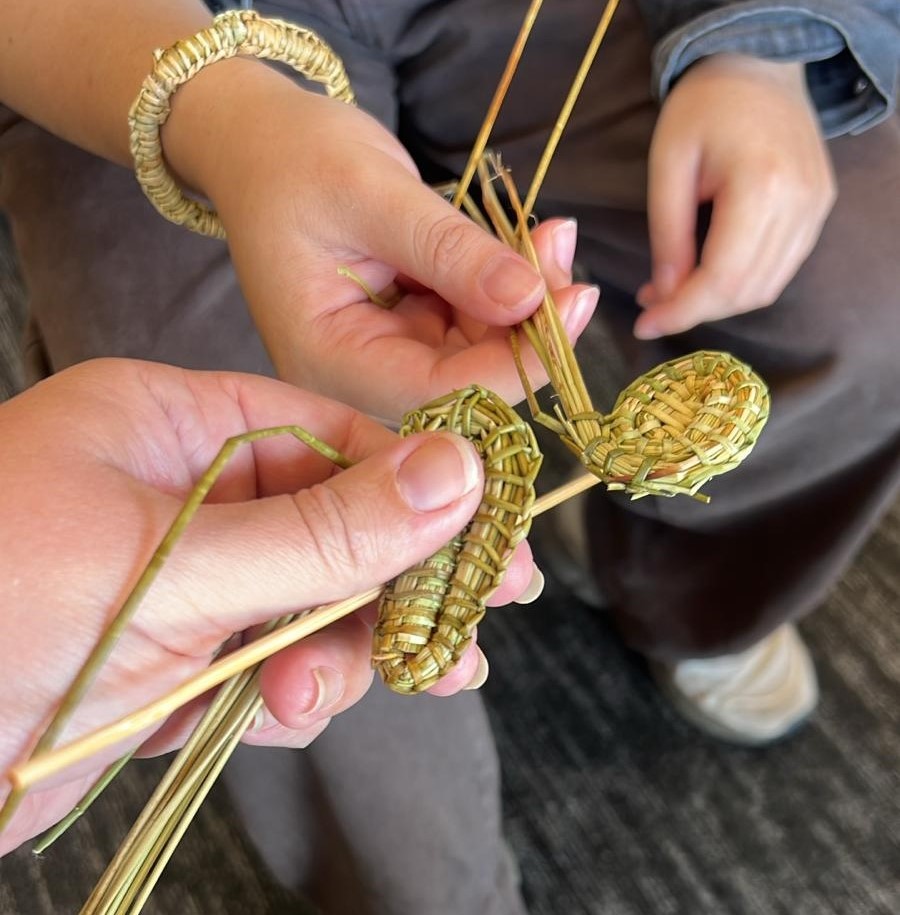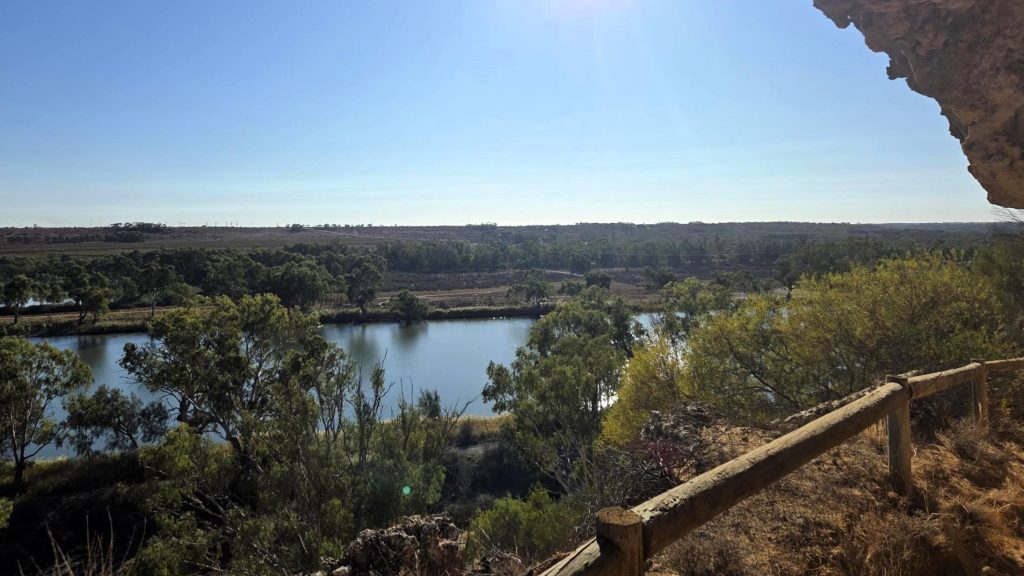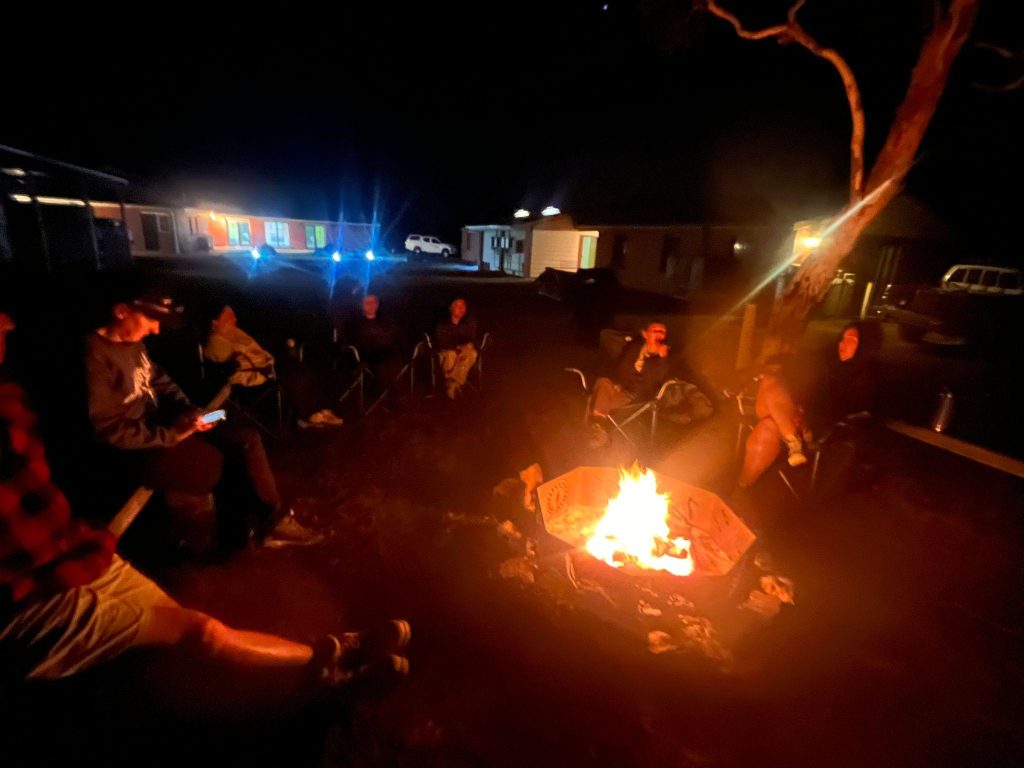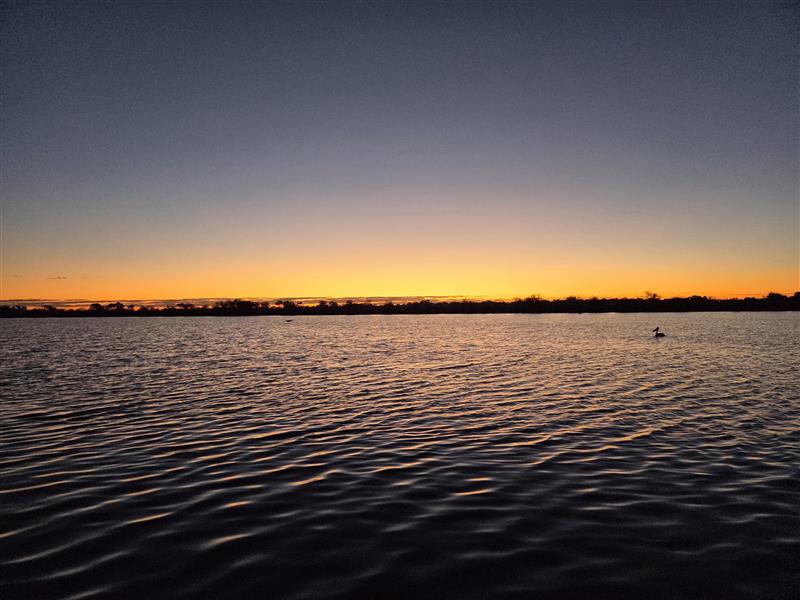A Jawun secondment is a 6-week opportunity to take a step away from your life and immerse yourself to live and work in an Aboriginal community. Jawun is an organisation that coordinates secondees and matches their skillsets with an Indigenous organisation with which they are partnered. When you participate in the Jawun program, you become part of a cycle where you progress a project and then pass on that work to future secondees with the goal of eventually building towards the community’s capacity to be self-sufficient.
Working with the Ngarrindjeri people
The Lower River Murray region in South Australia is a breathtaking area where my mornings started with sunrises overlooking the river and ended with pelicans floating by as the sun set. I worked with the Ngarrindjeri (water) people in the regional town of Murray Bridge and loved every moment; from induction to the very last day, we were welcomed with open arms and showered with hugs as they shared their history, stories, and culture.
They are people who display such strength and perseverance in their everyday lives that I still feel so honoured to have been allowed the chance to meet and work alongside them. During my 6 weeks, my time was split between Mardawi Sister Weavers and Black Duck Dreaming, working to set up business processes and support their future growth.
Mardawi Sister Weavers are an organisation focused on cultural preservation and the empowerment of Ngarrindjeri Mimini (Women) through weaving. Weaving was used as the vehicle to pursue a reconnection to culture as well as a social healing practice.
Black Duck Dreaming run the Ngaut Ngaut Heritage Tours under MACAI (Mannum Aboriginal Community Association Incorporated). These tours offer insights into the traditions, dreaming and oral histories of the Nganguraku and Ngaiwang people. It is a site that holds cultural significance in its historical use and through the stories told in the rock carvings.



Challenges, learnings and reflections
If there is one thing I want to share, it’s the practice of deep listening. In this age of Gen AI and social media, we are increasingly being overwhelmed and even desensitised to information. It has become commonplace to multitask during meetings, whether to check emails or reply to a Teams chat on the side. In keeping up with our fast-paced working environments, we may be at risk of forfeiting the space where connections and understandings are held and exchanged.
Deep listening, unlike active listening, is a focus on the other person entirely and the message they want to communicate. When you listen deeply, you are not waiting for a gap or lull to bring yourself into the conversation. It’s about fully focusing on the other person’s message, more than just what they are saying and how they are saying it. It means focusing on what they want to share and recognising that they may not want to delve deeper in a certain direction. Through deep listening, we allow the other person to guide the conversation in their way, and as a listener, we must be present and respect their space.
One of the most challenging things I had to do was not to push ahead into my project and get to work, but to slow down and listen. And I am so grateful that I did. When I was with Mardawi, I observed the care, the dedication and expertise. I listened to the history of a business born from a drug and alcohol rehabilitation centre. Learning about the healing power of weaving from Aunty Ellen Trevorrow was another highlight of my secondment experience.
Stitch by stitch, circle by circle, weaving is like the creation of life. All things are connected.
Aunty Ellen Trevorrow
When we visited Ngaut Ngaut, I heard the stories, saw the landmarks, and felt the pride as they explained the significance behind the rock carvings that had been dated at eight thousand years. It was through these experiences that I was able to really connect and then move forward with my project in earnest.
Since returning to UTS, I have realised the importance of deep listening in my daily work life when interacting with my colleagues.
Advice for future secondees
The secondment experience is life-changing, and while no two experiences are the same, I do encourage anyone to apply. If you want to contribute to a genuine cause and are willing and able to put your life on hold for 6 weeks, it is a worthwhile experience.

The best advice I can give to those applying or about to go is to listen, set aside your privileges and pride, and be able to go with the flow. Rely on your fellow secondees and make the effort to check in and support each other. It is only a short while, and you only get out as much as you put in, so being flexible when challenges arise is key. It’s not a holiday, and it is demanding work, but the outcome is so worth it.
Nukkan! (See you)

Thank you for this blog, Janet! I enjoyed reading it. It sounds like you had a wonderful experience learned a lot in the process. I will try and be a deep listener instead of being distracted by the multiple streams of incoming information!